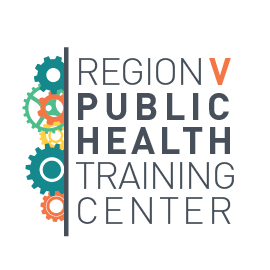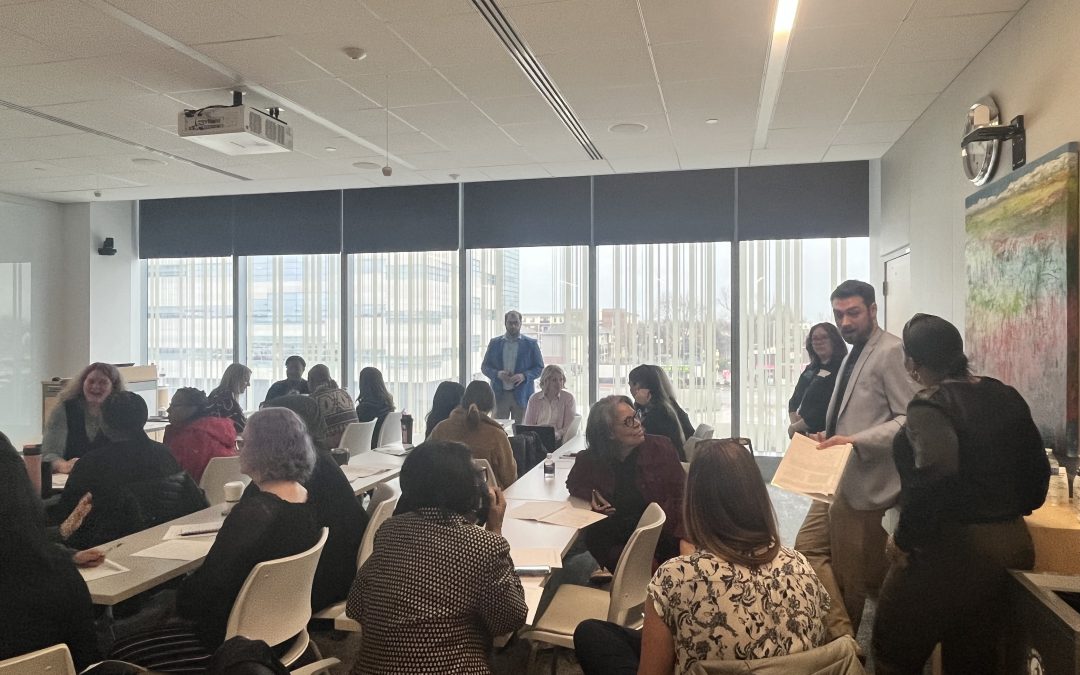By Krizia Melendez, PhD, MPH, CHES, Columbus Public Health
When working to better the health of our communities, we need to equip ourselves with knowledge, practice, and partnerships. On Friday, March 8th, the Columbus Public Health department in Ohio hosted our health literacy conference: All Access Pass to Health Literacy. This conference was centered on bringing in public health and community professionals at all levels to discuss how access to care and community engagement are impacted by health literacy. This is our second time hosting this type of conference. This year we aimed to:
- Address the role that organizational health literacy plays in access to care and community engagement, and
- Discuss action items with organizational leadership to bring about change to improve health literacy practices.
To meet our aims for this conference we pooled our resources and sought out engaging speakers who could provide their expertise in an impactful way to both our in-person and virtual audiences. But how do you coordinate two types of audiences? This is a hybrid conference where attendees are encouraged to participate in breakout groups, discussion, and Q&A with speakers and each other. It isn’t easy to coordinate 140 attendees in person and 145 virtually, but making sure to have the right number of volunteers to watch over each session is key. We have dedicated volunteers providing support and facilitation throughout the conference to make the day run smoothly. As we bring all of these people together to learn about health literacy under their topic of interest, we also provide a space (in-person and virtually) where attendees can connect with each other and begin to discuss collaborative efforts in the future.
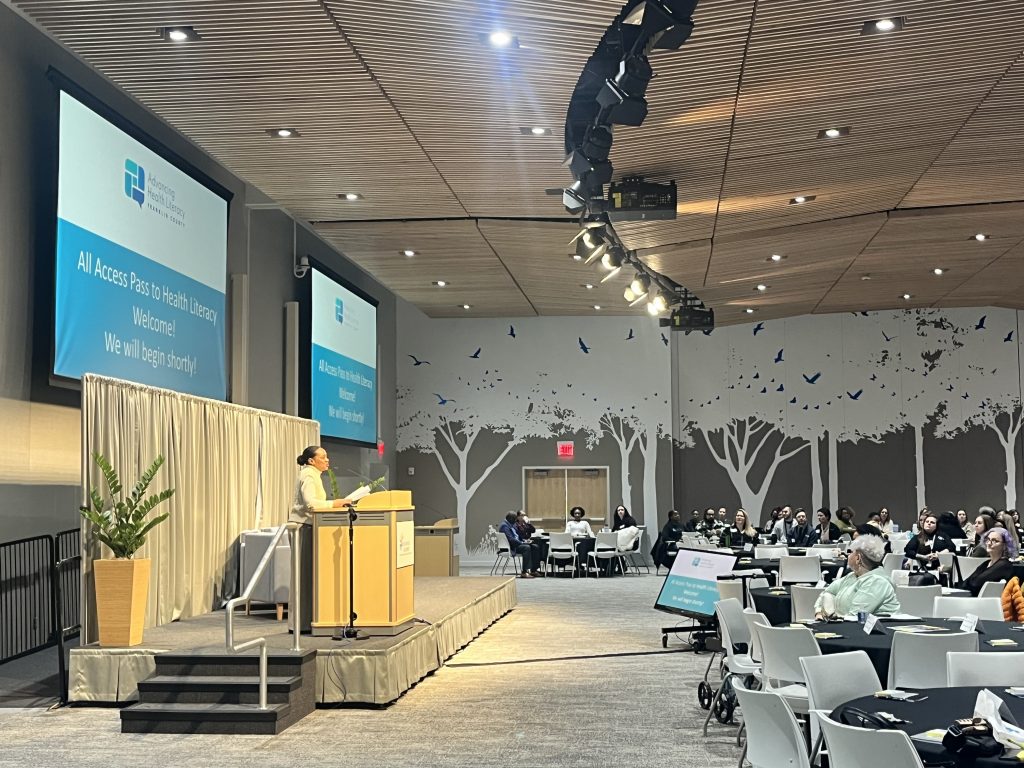
Dr. Roberts providing the welcome to our virtual and in-person attendees the morning of the conference.
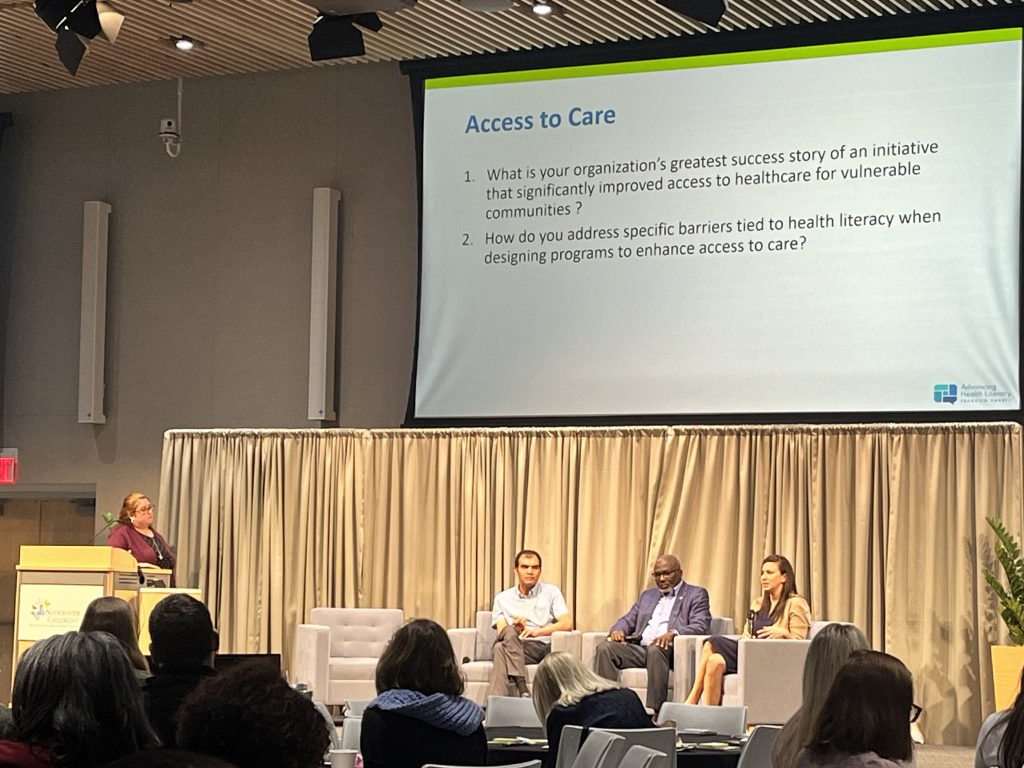
Expert panelists representing 3 Federally Qualified Health Centers discussing how access to care is affected by health literacy during the morning plenary session How Does Health Literacy Impact Access to Care and Community Engagement for Federally Qualified Health Centers (FQHC).
Core components of the conference lead participants to focus on local vulnerable/priority populations’ unique barriers to accessing care or how to effectively engage the community while accounting for health literacy. These components were then propelled into action by each attendee who was charged to develop action items to implement at their organizations. This is our way of providing the organizations that serve our community with insightful information about organizational health literacy while taking steps to solidify our services to the city.
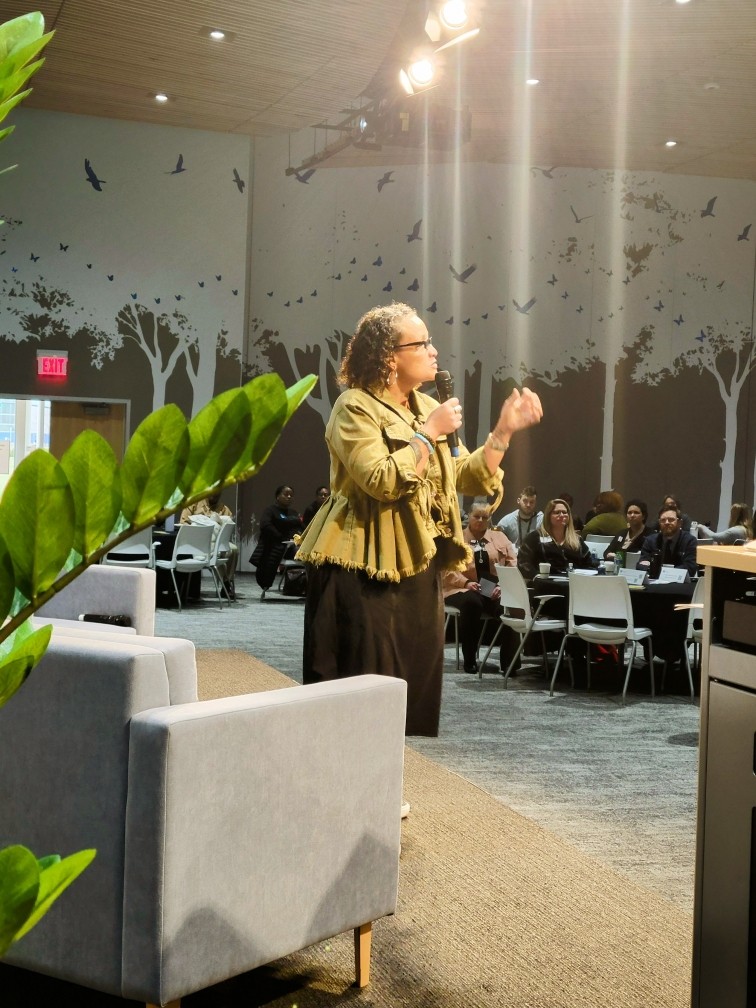
Andrea Boxill presenting during her breakout session on community engagement.
These action items are refined throughout the conference day, as the attendees participate in activities, panel discussions, and breakout sessions to form an action item they can take back to their organization and sustain. The steps we follow in our action item writing process allow anyone to craft an action item step by step while attending the conference presentations for the day. Our team will then check on the progress of each action item one month and three months after the conference. We also discuss with each attendee how they can tie in collaborators to move the progress of their action item along, and who they would reach out to collaborate with. We do this to connect attendees from different organizations to each other to ease the forming of partnerships towards more health-literate organizations serving our communities.
We find that providing these types of events is key to reducing barriers while incentivizing organizations throughout our county to become more health literate. The steps taken to move progress through this conference can be used as a framework for other public health-focused organizations wanting to reduce barriers to services, care, and improved health, and to promote community engagement tied to health literacy.
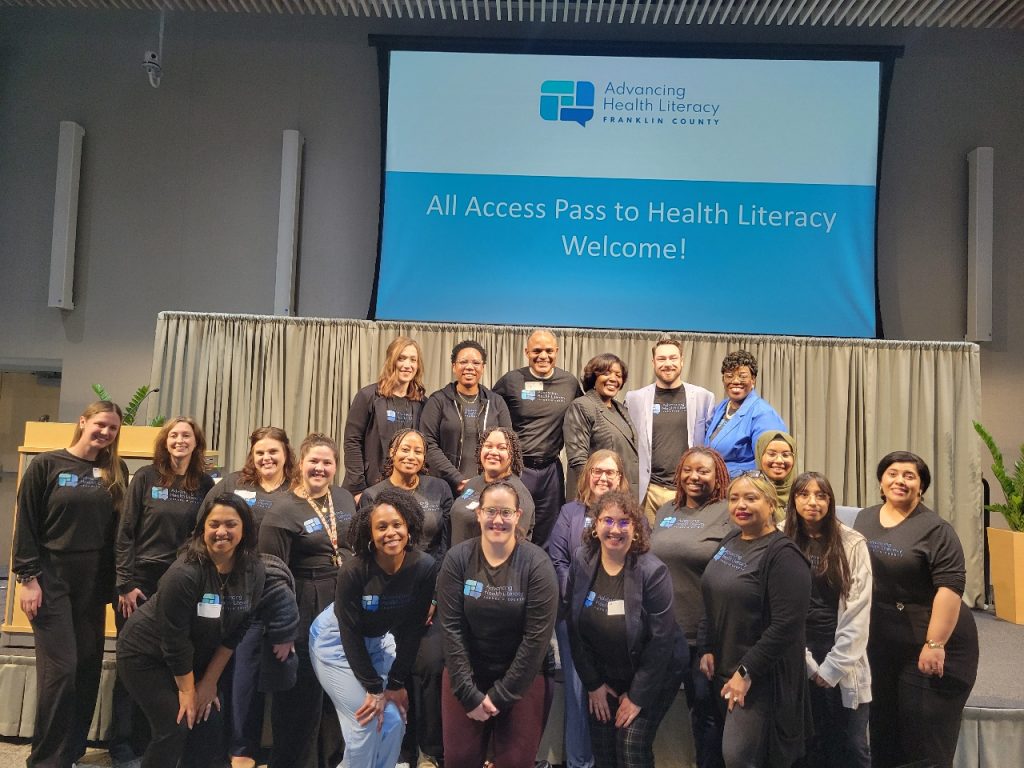
Group picture of conference volunteers.
To learn more, check out this resource:
